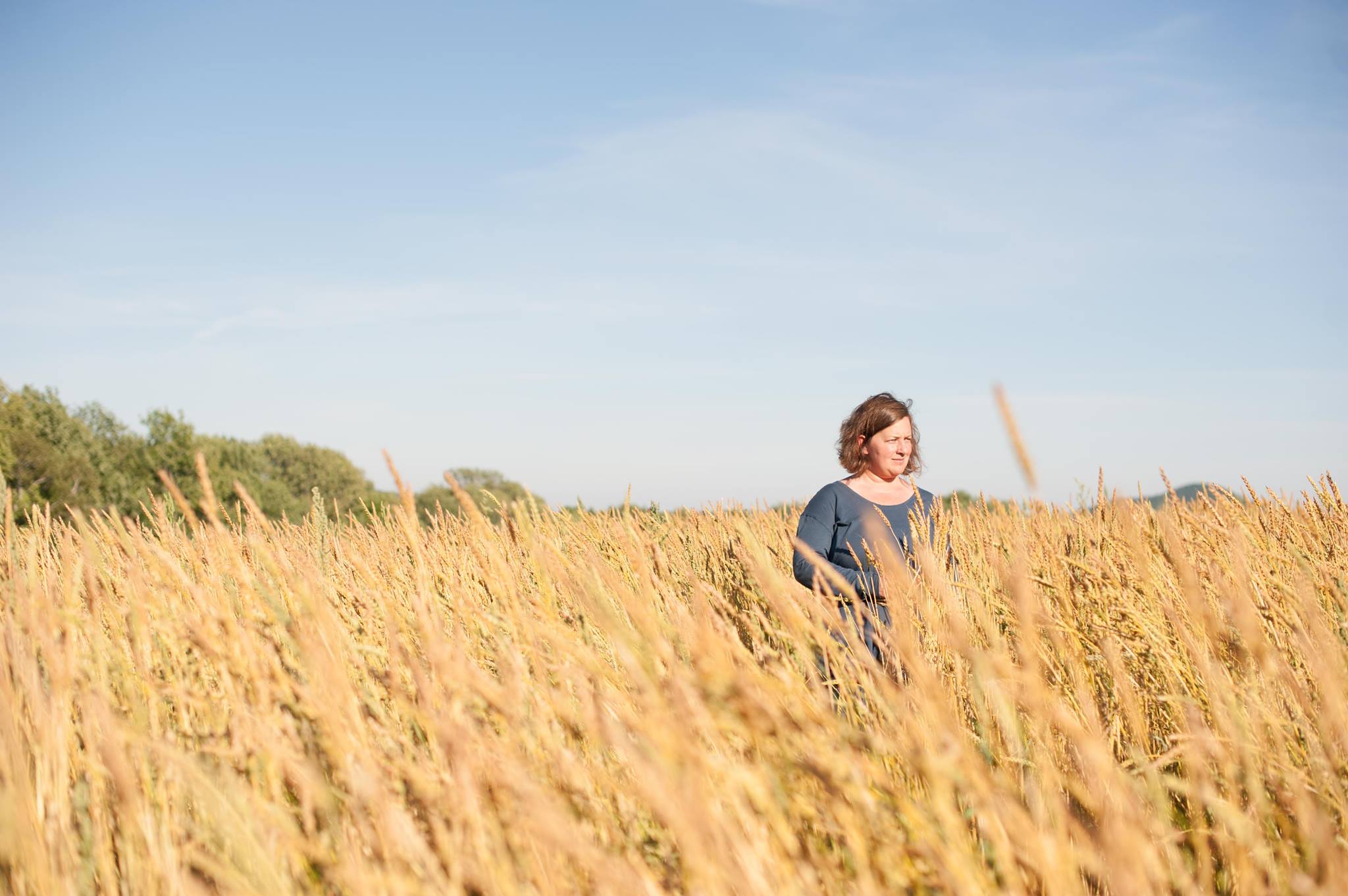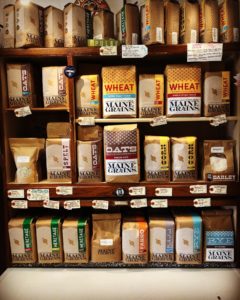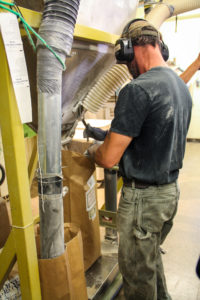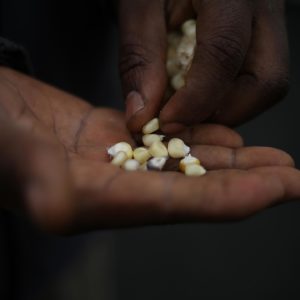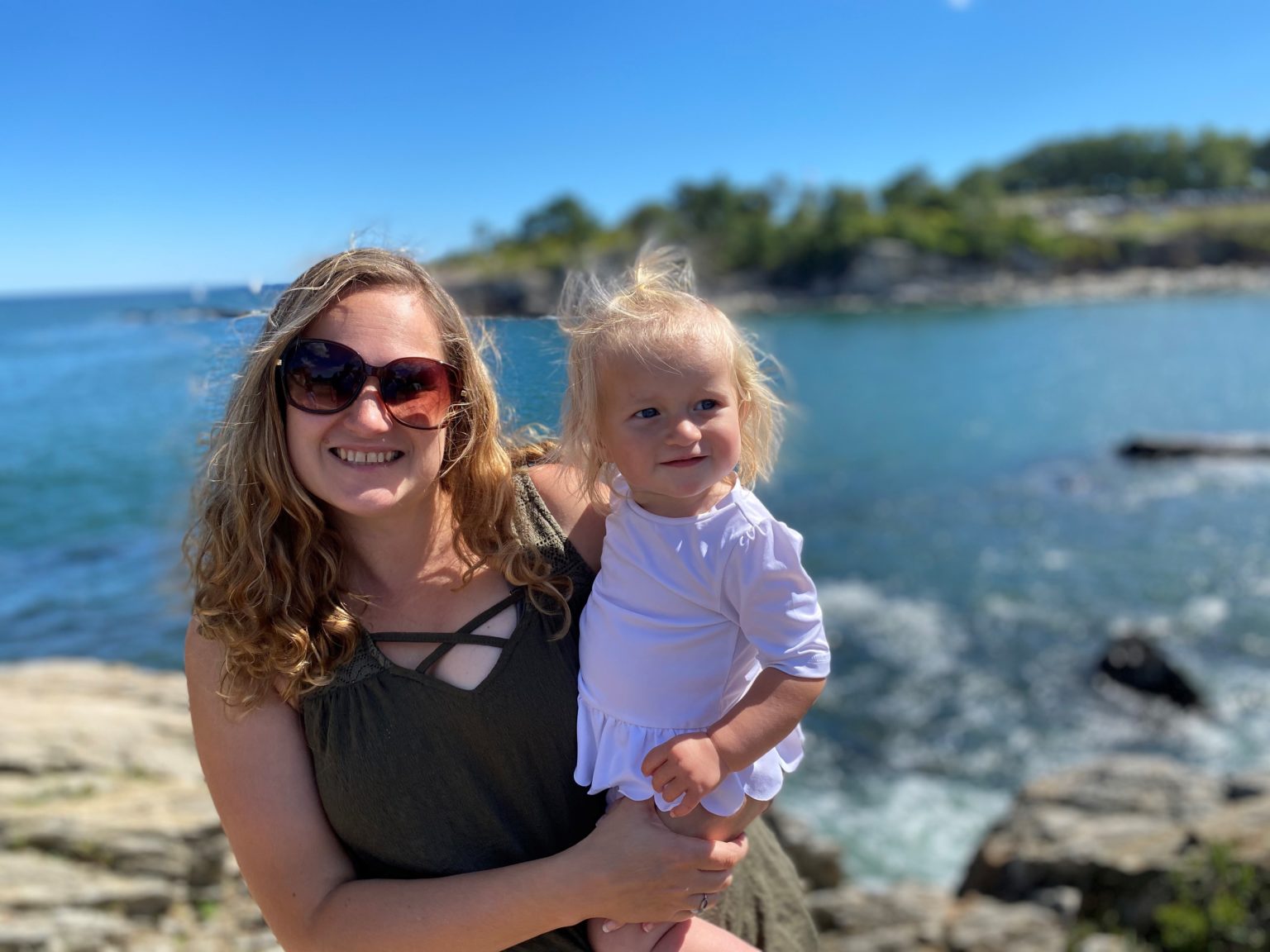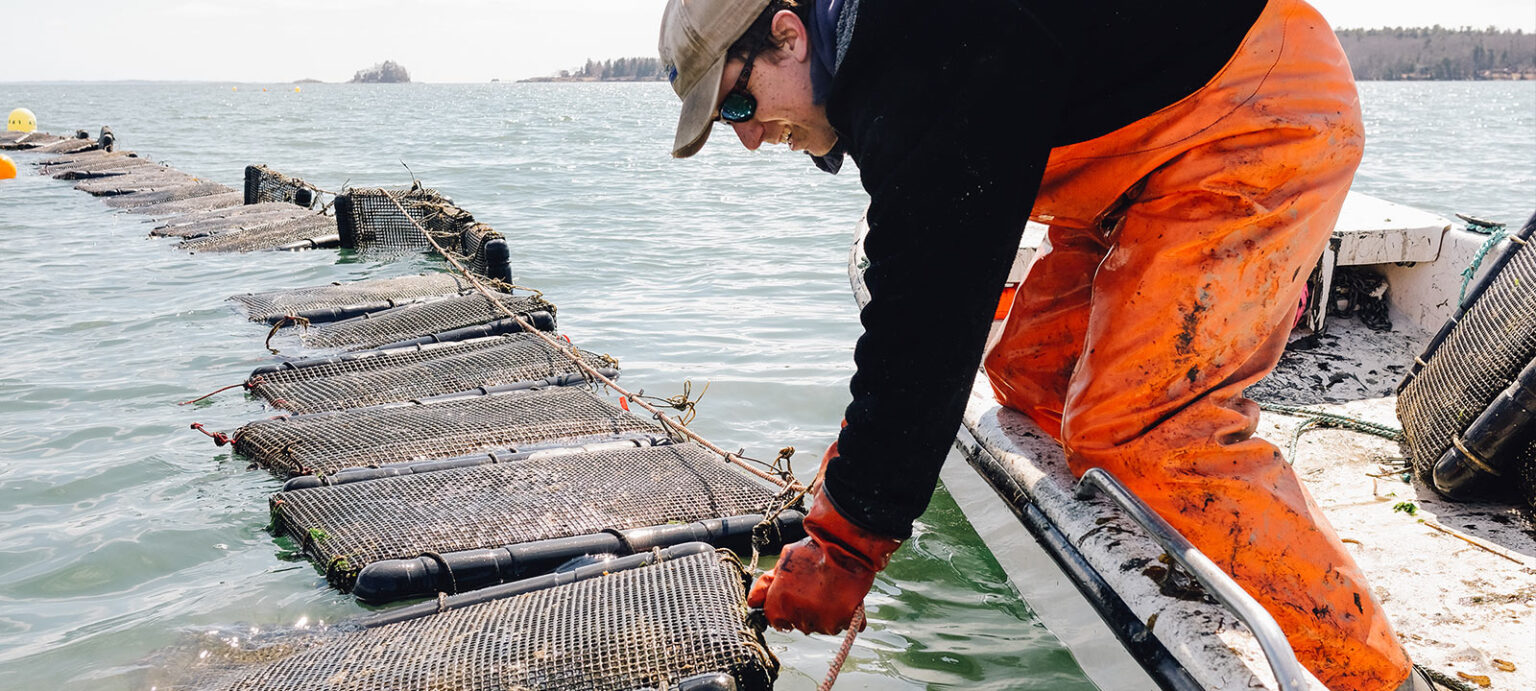May 06, 2021
Maine Grains
At the start of the COVID-19 pandemic, one of the most sought-after and hard-to-find items, behind toilet paper and hand sanitizer, was flour. Stuck at home in lockdown, everyone, it seemed, was baking.
With bags from the “big four” flour producers missing from shelves, shoppers turned local, creating an unexpected boom in business for smaller regional producers like Skowhegan’s Maine Grains, which saw a 4,000% increase in its online sales. While Maine Grain’s co-founder and president Amber Lambke, doesn’t expect direct consumer sales to continue at pandemic-levels, the demand and increasing interest in local foods resulting from the pandemic has made an impact with mainstream retailers – “We got calls from mainstream grocery stores we’ve been trying to get into for years,” Amber reported in March. Maine Grain’s ability to take on this increased demand was made possible by strategic investments made by the company over the past four years, with the support of CEI financing and advice.
Maine Grains has been in operation since 2012, cofounded by Amber and Michael Scholz, a professional baker, who had previously teamed up to establish the Kneading Conference, an annual event that brings together farmers, professional and home bakers, brewers, chefs, cooks, grain researchers, maltsters, and food entrepreneurs to educate one another about the art and science of growing, milling and using grains. Amber and Michael, seeing a desire for more local grains, were determined to bring grain processing infrastructure to central Maine. They landed on the perfect location when the historic Somerset County Jail in Skowhegan went up for sale in 2009.
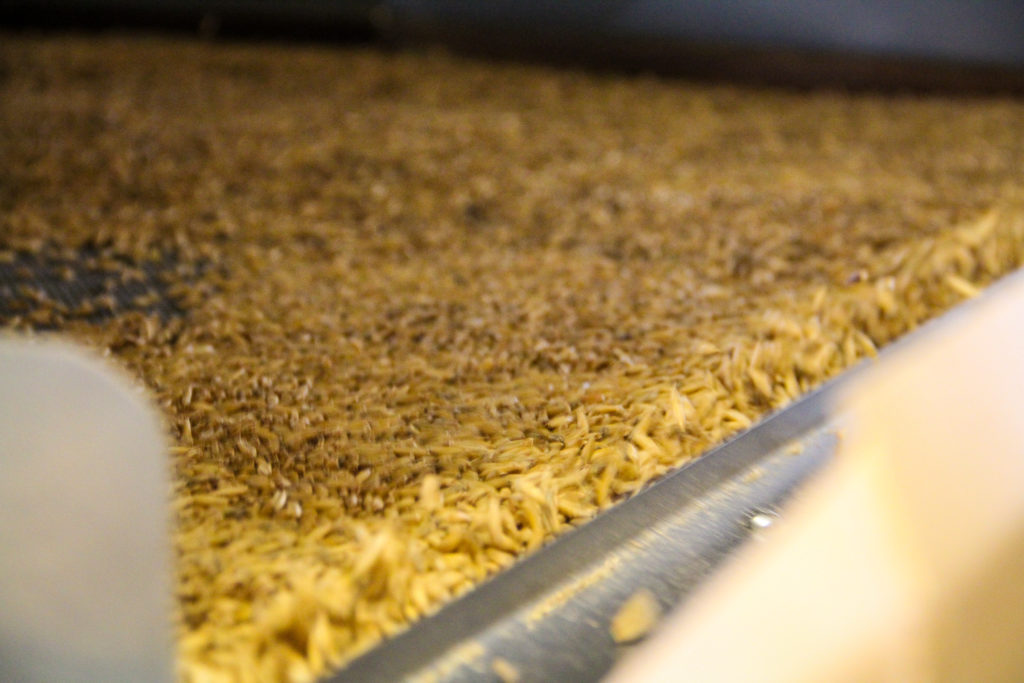
Several years of research and development later, Maine Grains officially opened in September 2012, taking in its first of Maine-grown grains for cleaning and grinding on traditional mill stones. By the time CEI came to the table in 2016, the company had ten employees and was on a strong growth trajectory – doubling sales from the previous year. Future growth, however, was limited by their production capacity.
“In our early setup,” Amber recalls, “we had one set of cleaning equipment. So, if we were cleaning, then processing had to stop and the customers had to wait. We decided we really needed to be able to have multiple production lines in this facility that allowed different things to all be happening simultaneously. CEI provided some of that critical help at the time that we needed to purchase new machines.”
That critical help came via CEI loans and an investment from CEI’s Catalyst Fund, which makes early-stage equity investments in food system businesses that support local agriculture and fill critical gaps in the local supply chains in Maine and the northeast. As part of the Catalyst Fund investment, Chandler Jones, a principal with CEI’s venture capital subsidiary, CEI Ventures, was appointed to Maine Grain’s board of directors as an observer.
“All along the way, Chandler has provided helpful guidance, counsel and cheerleading all at different points,” Amber reports.
In addition to the moral and monetary support from CEI, Maine Grains has cobbled together financing from, in her words “a whole smorgasbord of different kinds of financing,” including individual private investments, philanthropic foundations and traditional bank financing – none of it easy to secure.
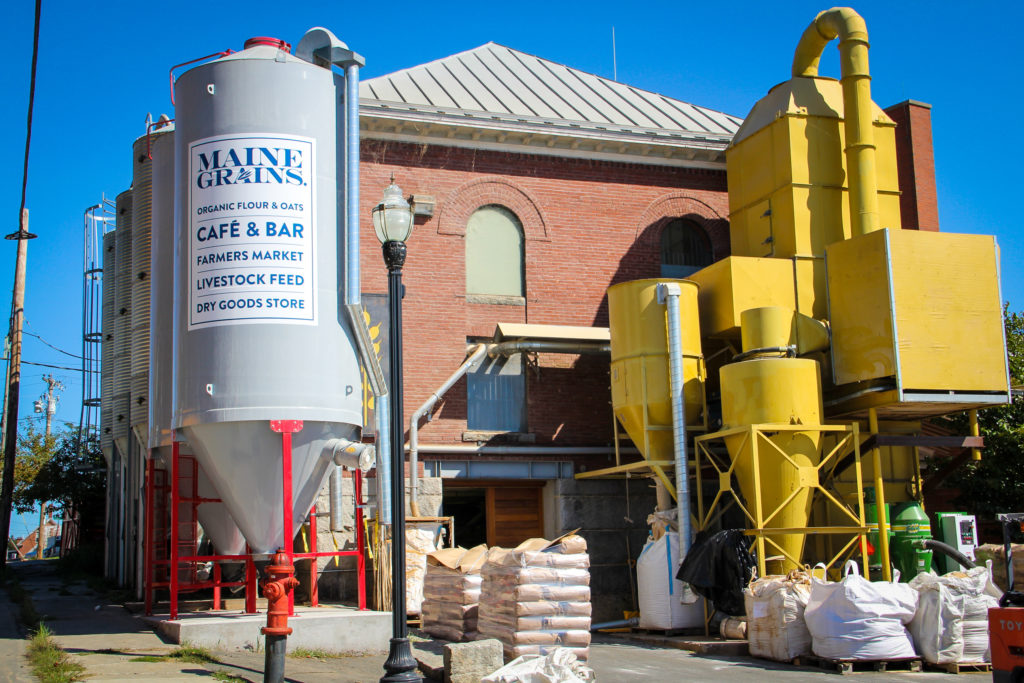
“Funding entrepreneurs is risky because buying equipment is expensive,” Amber explains, “renovating buildings, or building buildings is expensive. Even when you are trying to leverage your equipment, the collateralization of that equipment sometimes doesn’t help. Other lenders and investor want to see a model of profitability before they will back you. So sometimes that has prevented us from getting loans from local lenders. CEI is definitely one of those lenders and one of those investors that is prepared to take more risks, particularly in this segment. And it’s great that we have them here.”
Amber remains committed to the growth of Maine’s grain sector, working to increase the market for local grains in parallel with the efforts of the University of Maine Cooperative Extension and the Maine Grain Alliance to train grain farmers and end users with the knowledge and equipment to scale and command premium prices for their products.
Maine Grains, which forgoes commodity pricing and works directly with farmers to price their harvests, purchased over $1 million worth of Maine-grown grain in 2019 for its retail and wholesale products, including wheat, spelt, buckwheat, rye and corn flours, including heritage wheat grains like Red Fife and a special single-source corn flour that supports Liberation Farms and the Somali Bantu Community Association.
Amber sees re-localizing grain production and milling as a way to support the health and livelihood of the Maine farmers and communities by creating jobs, improving land use, and providing healthy food for all, with Maine Grains leading the way as a successful model for thriving local economies.
Learn More About Maine Grains
- Website: https://mainegrains.com/
- Facebook: https://facebook.com/mainegrains
- Instagram: https://instagram.com/mainegrains
LOOKING TO START OR GROW YOUR FOOD PROCESSING OR AGRICULTURE-BASED BUSINESS?
CEI’s Sustainable Agriculture and Food Systems Program supports an economically just and sustainable food system that creates quality jobs for a diverse workforce and builds wealth and resilience in rural communities. CEI offers free business advising, short & long-term financing and the Tastemakers Initiative, a targeted food and beverage producer accelerator in partnership with FocusMaine. Learn more at: https://www.ceimaine.org/advising/natural-resources/agriculture/
